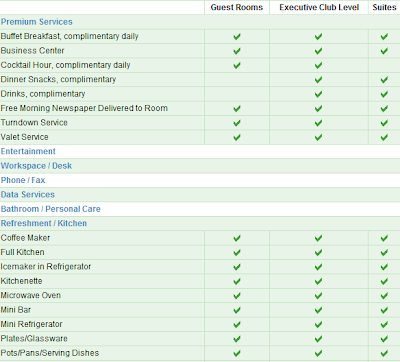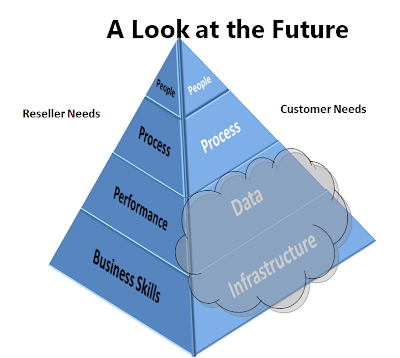In January 2011 we experienced a very different set of experiences regarding our hotel stays in China. We arrived in Shanghai on January 6, 2011 and were taken by taxi to the Renaissance Shanghai Pudong Hotel. We were greeted and checked in for a delightful two days in the city. We were located conveniently close to the Metro for the Science and Technology Museum and found the service and the staff to be very helpful. We stayed at this property using our Marriott Rewards Platinum Premier points.
After two days in Shanghai, we took the train to Hangzhou where we were scheduled to stay 10 days at a different hotel chain. This was a fairly new hotel and we were booked using points through our hotel membership program. Upon arrival at the Hangzhou train station, we secured a taxi to take us to the hotel for check-in.
Upon arrival we discovered some major problems with the reservation that was offered under our Platinum membership. The website had indicated the room was capable of up to three people – so the assumption was a room with two queen beds would be available. However there was only an option of a king bed, or two single beds available. We were offered, after some strong displeasure with the finding, to put a rollaway bed into the room for 200 RNB per night. The room was barely large enough to put the bed into and left no room for moving around – it really was an unworkable solution. We also were told that there was no breakfast included with the room, nor access to the executive lounge. Having stayed in dozens of this chain's properties over the past years – this was quite a shock since the website only shows three available room types and all include items we were not offered nor being allowed access to. Our normal experience is to be upgraded to the next level as a club member –
not downgraded because we were using points for our stay to a room offer that is not even listed on the hotel website. (Web shot below)

The description on the website for even the lowest end room indicated it would be more than adequate. Upon a return trip to the front desk to again express displeasure, the night clerk called a manager to see if we could be upgraded to a family suite so we could at least all sleep comfortably. After waiting in the lobby for 15 minutes or so, the message came back that no upgrades would be made available and if we wanted to stay in the property we would indeed have to pay the 200 RNB per night cost for the rollaway and no breakfast or lounge privilege would be provided. At that point I indicated we would be checking out in the morning and moving to a Marriott property. I will give credit to the manager that they did refund the unused points for the other 10 days of our stay, but to be honest,
my faith in this chain and particularly the value of their club membership program have been badly damaged. The total unwillingness to seek a satisfactory resolution for a member of Platinum status was quite unbelievable.
We moved to the JW Marriott which was just opening a few miles away. At the time we booked our trip, there were no Marriott properties available to make reservations at. This property was in soft opening mode – so we expected some slight glitches as they were training and putting things into operations. I realize that the level of the JW Marriott is not exactly par with the hotel we had left – it is a couple levels higher in terms of the quality of the property – but the true differentiator has been in the customer service area. We arrived at the hotel at 8 AM – as we checked out of the very uncomfortable environment at the other hotel and moved to the JW Marriott first thing in the morning. We were greeted and immediately checked in – upgraded as well – which is the common Marriott practice for Platinum members. We had two guest service representatives who escorted us to our room and explained all the benefits we would receive while staying in our room – also paid for with points as we had planned to do at the other property. (Interestingly, the points needed at the other place were 15K per night while the JW Marriott was only 12K per night for a much nicer property). We had a slight elevator issue on the way up to our room but our guest service representatives resolved the issue and got us safely to our room.
They then escorted us to the executive lounge for breakfast, even though we hadn’t spent the night before. That was service beyond our expectations. We had full executive lounge privileges for our entire stay which was a significant value for us.
We stayed at this property for 10 nights and it is
with joy that we highly commend the Marriott brand for customer service the way it should be expressed. From the moment we walked in to the property, we were treated exceptionally well. From Simon and the team in the executive lounge who greeted us daily and are sure we got a hearty breakfast and evening meal, to Tony and Andy who helped us as concierge’s extraordinaire and printed us maps, directions and helped us secure train tickets for our return trip to Shanghai, to the bellmen, desk staff and every other member of the Marriott team, we experienced superb customer service. The omelets which were prepared for us by the executive lounge chefs were perfect, our room was kept clean and tidy with care, taxis were secured as needed, and we were greeted by name and with a smile every time we walked back into the hotel. The differences between our experiences with the two hotel chains there were staggering.
Marriott has trained their staff extremely well and taught me the importance of creating raving fans. They have done exactly that with us on this trip. As we return now to the US, and plan meetings and travel for the dozens of events and trips that will occur over the next 12 months, Marriott properties will be the clear choice when available. They have earned the right and mostly our hearts as fans of their customer service.
So what’s the lesson here? Quite honestly there are several that I want to be sure you understand clearly:
1.
Always listen to the customer. It was obvious that we were not being listened to and understood. It is impossible to deal with problem resolution without a clear understanding of what the issues are.
2.
Check out the facts. I requested multiple times that the clerk look at the website to see exactly what we saw as the facts in the matter. We were told that it didn’t really matter what the website said – this is the way it is. If there is misinformation, it is important to know that and correct it.
3.
Understand what needs to be done to satisfy the customer. We were never asked what would be required to resolve the situation. There was no understanding nor apparent concerns with what our expectations were.
4.
Know the impact. At HTG we book well over $750,000 worth of hotel meetings each year covering thousands of room nights all over the country. The impact of the treatment we received will result in a significant opportunity cost to the other hotel brand over the coming months and years. It is critical to understand the long term impact of customer service decisions.
5.
Remember that the customer has to be treated as if they are always right – even when they are not. The end result of customer service has to be coming to a satisfactory resolution to the issue.
As is always the case, things happen for a reason. There is little doubt that our experience here in China was significantly enhanced because we stayed at the JW Marriott. The location was better, the service superior and we were pleased in every way. Had we actually received our expectations at the other hotel, it would not have measured up to what we were blessed to experience. So while the experience was definitely frustrating for 12 hours or so, the outcome was magnificent as we made the move and enjoyed a time beyond our dreams or expectations. Thanks to the JW Marriott staff in Hangzhou for creating a memory that will last a lifetime. We are grateful for your service and are raving fans!


